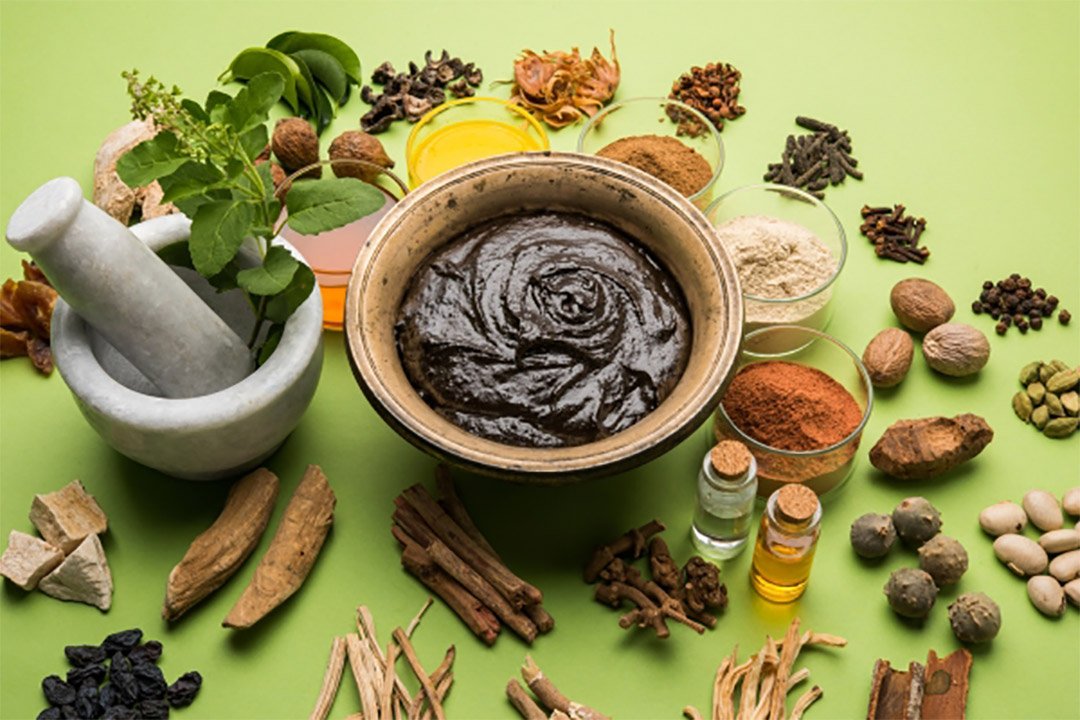New Delhi, 11 August 2025: Ayurveda, one of the world’s oldest holistic healing systems, has been practiced in India for over 5,000 years. It focuses on balancing the body, mind, and spirit to promote overall health and well-being. Central to Ayurvedic medicine are a variety of herbs that possess powerful healing properties, many of which are now backed by modern scientific research.
Here are ten of the most powerful Ayurvedic herbs with proven healing benefits:
1. Ashwagandha (Withania somnifera)
Often called “Indian ginseng,” Ashwagandha is a powerful adaptogen, meaning it helps the body cope with stress. It has been used for centuries to boost energy, reduce anxiety, and improve mental focus.
Proven Benefits:
- Reduces cortisol (stress hormone) levels
- Enhances physical performance and muscle strength
- Improves sleep quality
- Supports thyroid and adrenal health
Scientific support: Studies show that Ashwagandha can significantly reduce stress and anxiety levels while also improving endurance and cognitive function.
2. Turmeric (Curcuma longa)
Turmeric is one of the most researched herbs worldwide. Its active compound, curcumin, has powerful anti-inflammatory and antioxidant properties.
Proven Benefits:
- Reduces chronic inflammation
- Alleviates joint pain and arthritis
- Supports brain function and protects against neurodegeneration
- Promotes heart health
Scientific support: Numerous studies confirm curcumin’s role in reducing inflammation and oxidative stress, with some suggesting it may be as effective as over-the-counter anti-inflammatory drugs, without side effects.
3. Tulsi (Ocimum sanctum or Holy Basil)
Known as the “Queen of Herbs,” Tulsi is revered in Ayurveda for its ability to balance body systems and enhance resilience against stress.
Proven Benefits:
- Boosts immunity
- Supports respiratory health
- Reduces blood sugar and cholesterol
- Fights bacterial, viral, and fungal infections
Scientific support: Research has found that Tulsi has anti-inflammatory, antimicrobial, and adaptogenic properties that benefit multiple organ systems.
4. Brahmi (Bacopa monnieri)
Brahmi is a renowned brain tonic in Ayurvedic medicine. It has been traditionally used to enhance memory, focus, and mental clarity.
Proven Benefits:
- Enhances memory and learning
- Reduces anxiety and stress
- Supports cognitive function in aging
- Acts as a neuroprotective agent
Scientific support: Clinical trials show Brahmi improves cognitive performance, especially in learning and memory, due to its influence on neurotransmitters like serotonin and dopamine.
5. Triphala
Triphala is a combination of three fruits—Amalaki (Emblica officinalis), Haritaki (Terminalia chebula), and Bibhitaki (Terminalia bellirica)—and considered a cornerstone of digestive health in Ayurveda.
Proven Benefits:
- Supports digestion and regular bowel movements
- Acts as a gentle detoxifier
- Rich in antioxidants
- Boosts immunity
Scientific support: Triphala has shown to improve gut health, reduce oxidative stress, and even support weight management.
6. Guggul (Commiphora mukul)
Guggul a resin extract traditionally used for balancing cholesterol, reducing inflammation, and aiding in weight management.
Proven Benefits:
- Reduces LDL (bad) cholesterol and triglycerides
- Supports thyroid health
- Has anti-inflammatory and anti-arthritic properties
- Aids in fat metabolism
Scientific support: Studies confirm that guggulsterones, the active compounds in Guggul, help regulate lipid levels and support metabolic health.
7. Neem (Azadirachta indica)
Neem known for its powerful detoxifying and antimicrobial effects. It used both internally and externally to promote skin and overall health.
Proven Benefits:
- Purifies the blood
- Fights bacteria, viruses, and fungi
- Supports oral and skin health
- Helps manage diabetes and inflammation
Scientific support: Research supports Neem’s antibacterial, antiviral, and antifungal properties, particularly in treating skin conditions and infections.
8. Shatavari (Asparagus racemosus)
Shatavari known as a rejuvenating herb for women. It helps balance hormones, support fertility, and improve reproductive health.
Proven Benefits:
- Supports female reproductive health
- Balances hormonal levels
- Acts as a natural galactagogue (enhances breast milk production)
- Enhances immunity
Scientific support: Studies suggest Shatavari may support hormonal balance and enhance antioxidant defense in women, particularly during menopause and postpartum.
9. Licorice Root (Glycyrrhiza glabra)
In Ayurveda, Licorice known as “Yashtimadhu” and used to soothe the digestive system, reduce inflammation, and support adrenal function.
Proven Benefits:
- Soothes ulcers and gastritis
- Reduces inflammation and respiratory issues
- Supports adrenal glands
- Promotes clear skin
Scientific support: Licorice has anti-inflammatory and anti-ulcer effects and may also help manage symptoms of adrenal fatigue and sore throat.
10. Amalaki (Indian Gooseberry – Emblica officinalis)
Amalaki, or Amla, is a potent source of Vitamin C and known for its rejuvenating and immune-boosting properties.
Proven Benefits:
- Enhances immunity and vitality
- Promotes healthy digestion
- Supports healthy blood sugar levels
- Strengthens hair and skin health
Scientific support: Rich in antioxidants, Amla shown to reduce oxidative stress, improve liver function, and protect the cardiovascular system.
Ayurveda is not merely about treating illness but about maintaining balance and preventing disease. These ten herbs exemplify this philosophy, offering natural, holistic support for a wide range of health conditions. Whether you’re looking to improve your mental clarity, reduce inflammation, or boost immunity, integrating Ayurvedic herbs into your daily routine—under the guidance of a qualified practitioner—can be a powerful step toward vibrant health.
A Word of Caution
While these herbs are natural, they are also potent. Always consult a healthcare professional or a trained Ayurvedic practitioner before starting any new herbal supplement—especially if you’re pregnant, nursing, or taking medications. Dosage, preparation, and compatibility with your unique constitution (dosha) are crucial for optimal results.
The timeless wisdom of Ayurveda continues to prove relevant today, as modern research validates the effectiveness of many traditional remedies. By harnessing the healing power of nature through herbs like Ashwagandha, Turmeric, and Tulsi, we not only address specific ailments but also restore balance to the entire system. These herbs remind us that true healing begins with harmony—within ourselves and with the world around us.







